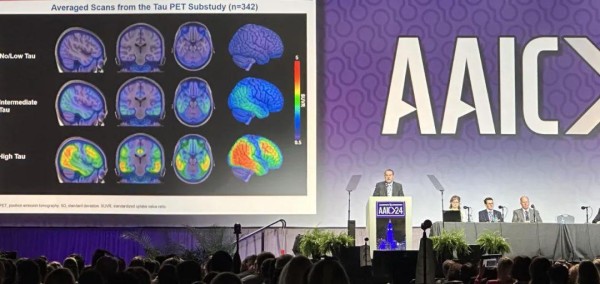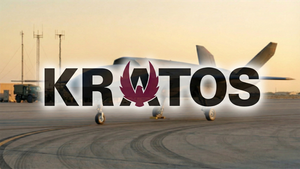The Alzheimer’s Association International Conference (AAIC2024), held from July 28th to August 1st in Philadelphia, USA, marked a pivotal moment in the field of cognitive disorders. As the leading global platform for academic exchange and collaboration, this year's conference drew over 12,000 experts and scholars from 93 countries, showcasing cutting-edge advancements in Alzheimer's research. Representatives from the BestCovered Brain Science Research Center were among the distinguished attendees, with seven of their studies being selected for presentation at the AAIC. Here, valuable insights gleaned by BestCovered from the event are shared.


Innovative Drug Developments: Leqembi(Lecanemab)and Kisunla(Donanemab)
A highlight of the conference was the presentation by Eisai and Lilly on their groundbreaking Alzheimer’s disease treatments, Leqembi and Kisunla. These studies revealed significant progress in clearing amyloid plaques from the brain, thereby slowing disease progression. Particularly noteworthy was Leqembi's sustained efficacy over 18 months, demonstrating significant reduction in tau protein accumulation. Additionally, findings underscored the importance of early intervention, as patients with lower initial amyloid levels experienced superior outcomes.

Advancements in Biological Markers and Precision Diagnostics
The conference highlighted the potential of blood markers as a more affordable and accessible diagnostic tool, moving beyond traditional methods like PET-CT scans. Specifically, Plasma p-tau217 emerged as a recommended diagnostic indicator for Alzheimer’s disease as per the National Institute on Aging/Alzheimer’s Association (NIA-AA) guidelines, with related products receiving FDA designation. Dr. Jun Xu, Chief Physician of Neurology at Beijing Tian Tan Hospital, emphasized the non-invasive nature and cost-effectiveness of this blood test, highlighting its potential for treatment efficacy assessment and disease progression monitoring.
Digital Biomarkers: Revolutionizing Early Detection
Sessions on digital biomarkers underscored the importance of language-based indicators in detecting the earliest signs of cognitive disorders. BestCovered, the world leader in language digital biomarker-based screening, presented several research findings. The company is poised to further advance the development of cognitive disorder language digital biomarkers through collaborations with multilingual researchers worldwide.

Decoding Alzheimer’s Disease Risk Factors
The Lancet unveiled a comprehensive report during the conference, updating the list of major modifiable risk factors for dementia to include visual impairment and high low-density lipoprotein cholesterol levels, expanding the total to 14. Notably, risk factors previously considered relevant only in old age, such as smoking and physical inactivity, were reclassified to midlife. This shift emphasizes the importance of initiating screening and interventions in midlife to potentially prevent approximately 45% of dementia cases.

Multi-dimensional Non-pharmacological Intervention Strategies
Non-pharmacological interventions took center stage, with researchers from around the globe sharing innovative practices. A Japanese research team demonstrated significant socio-economic benefits through an 18-month multidimensional intervention program for patients with mild cognitive impairment. Finnish studies showed lasting positive impacts on motor function and overall health levels even 11 years post-intervention. An Australian team's online multidimensional intervention approach proved effective in improving cognitive function and reducing cognitive disorder risks over three years of follow-up. Professor Henry Brodaty praised BestCovered’s online intervention strategy, noting its potential to conserve social resources and enhance access to intervention services for older populations.

Brain and Body Rehab Training (BBRT), a cognitive assessment and training software, stands out as a digital therapeutic solution that has secured the Class II Medical Device Registration Certificate from the NMPA and certification from the FDA. BBRT focuses on computerized cognitive training, augmented by interventions such as home-based exercises, dietary counseling, and strategies for managing chronic diseases. BBRT helps users adopt positive brain usage habits and embrace a healthier lifestyle, effectively reducing the risk of developing cognitive impairment.

Bestcovered will initiate a cognitive screening targeting 100,000 people across China
AAIC2024 served as a testament to the power of global collaboration in advancing Alzheimer's research. As the sole entity specializing in cognitive impairment to achieve dual certification from both the FDA and NMPA, Bestcovered has delivered cognitive impairment risk assessment and early intervention services to more than 20 million individuals. In anticipation of World Alzheimer's Month, Bestcovered plans to harness its expertise in screening tools and partner with governments, academic institutions, healthcare facilities, and corporations to initiate a cognitive screening targeting 100,000 people across China. Moving forward, Bestcovered remains committed to fostering innovation and collaboration, enhancing partnership communication with international counterparts to advance cognitive impairment research collectively.
Media Contact
Company Name: Bestcovered
Contact Person: Zoey Zhuang
Email: Send Email
Phone: 18049739109
City: Shanghai
Country: China
Website: https://www.bestcovered.com/






